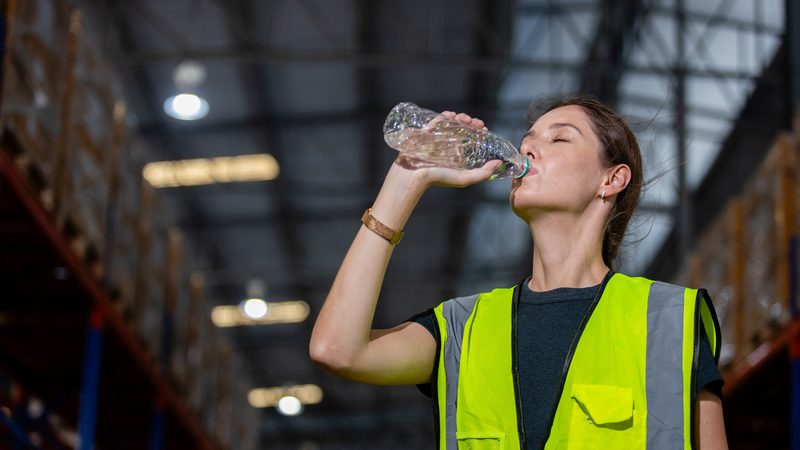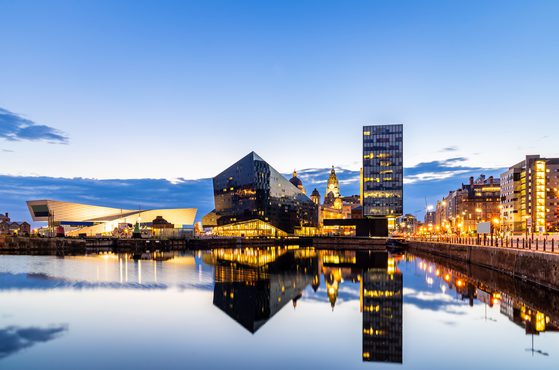The networking group for construction and property professionals.
Brabners Building Links event shines a light on health, safety and wellbeing in construction
AuthorsJennie JonesClaire Burrows
7 min read

Our popular Building Links event returned to our Lancashire office on 16 July 2025 and saw over 75 people from the property and development community across the North of England come together to discuss and debate the important topic of health, safety and wellbeing in the construction sector. In such a high-risk and challenging environment, the sector is facing a crisis — but are we seeing early signs of positive cultural change?
Our own Jennie Jones founded Building Links and chaired our latest event, which included a panel of expert speakers:
- Claire Burrows (a Partner in our regulatory and professional conduct team).
- David Collins (managing director at Collins Consult Limited).
- John Pickup (founder and architect at 3D Eco).
- Jonothan Potter (founder and director at Spacecubed Ltd).
The panel explored a range of topics covering legal insight, analysis of the education system, the latest data and design — each reinforcing that construction working environments need to be heathier and safer. Jennie opened the event by reaffirming the purpose of Building Links: "This network was created to understand and respond to the issues that matter most to the construction industry. Today, there’s nothing that matters more than the health of those working in the sector. It’s one of the highest risk sectors in the world. If we fail to address the mental and physical challenges, we risk lives, productivity losses, impacts on businesses and a shrinking workforce". Jennie also paid tribute to the work that is being done to tackle the crisis, praising charities such as Lighthouse Club and initiatives like Mates in Mind.
Health & safety is everyone’s responsibility
Our first speaker, Claire Burrows, gave a legal overview of the health and safety landscape. She said that health and safety is everyone’s responsibility and highlighted Sections 2 and 3 of the Health and Safety at Work Act 1974 (HSWA) and duties for employers and self-employed. Claire also underlined that employees have legal duties too, under Section 7, to take reasonable care for themselves and others, as well as to cooperate with their employers’ safety procedures.
She added that there is other key legislation that's relevant for health and safety — for example, the management of Health and Safety at Work Regulations 1999 and CDM regulations. "Health and safety law is not about actual harm but about the risk of harm," added Claire. "There doesn’t need to an accident for a company to be prosecuted. Inspectors will look at whether a risk has been suitably identified and controlled".
Businesses were advised that they need to fully understand the risk profile of their business. This needs to include training and supervision, with appropriate support. Claire added that the Health & Safety Executive (HSE) is going to be focusing more on mental health and wellbeing, pointing to the need for culture change. Claire reminded attendees that HSE inspectors can come at any time. She said: "They can take photos, look at documents, look around a building site and take measurements — and there's nothing that businesses can do, unless they're unreasonable or attend out of hours. If they think that there's a breach, they can give you headline advice, enforcement notices and prohibition notices. Failing to comply is an offence on top of the breach. In the most serious cases, they can prosecute — and this lies within the criminal courts".
Claire stressed that health and safety shouldn't be seen as a tick-box exercise. It can protect lives — and by doing so, protect your business.
A health and safety consultant’s view
David Collins took part in a Q&A session with Claire and shared his perspective as someone who spent years working on a construction site and is now a health and safety consultant. "The biggest mistake that businesses make is thinking that having a health and safety policy is enough," David said. "It isn’t. Health and safety is a live system. It has to evolve and be reviewed constantly".
David stressed that companies need to act on information. "Knowing something and then not dealing with it is worse. If you're aware and do nothing about it — and then the unfortunate happens — you knowing about it will be hugely detrimental." He added that a good health and safety culture starts with a status review. He advised businesses to look at systems, policies, procedures, risk assessments, training records and engagement levels of senior personnel and to keep reviewing this process.
Education and the future workforce
John Pickup brought a sobering education-focused lens to the discussion. He presented data from a leading UK further education college that houses 10,000 students, 17% of which are construction students. "In 2023, there were 1,850 student referrals for wellbeing support", John revealed. "In 2024, the number rose to 2,400. Of the construction students, 78% had been referred for counselling and 85% of those were male". John also added that there are now 29 staff in the college’s health and wellbeing department — within the last three months, the team has added three additional staff members.
John linked the statistics to wider industry patterns, with 83% of construction workers having experienced mental health issues. John also cited HSE statistics, adding that stress, anxiety and depression accounted for 49% of work-relation ill-health in 2022/23, resulting in 17m lost working days, costing £56bn. "There’s are growing expectation from the future workforce that the support structure will be in place", said John. "Businesses need to have a strategy for delivering support. It's good for staff wellbeing and the bottom line".
Healthier environments can help
Our final speaker, Jonothan Potter, presented an innovative response to the mental health challenge — the Spacecube. Originally designed for children needing safe, one-to-one support at school, these modular units are now being adapted for construction sites. "These spaces are immersive, flexible and quiet", Jonothan explained. In high-noise environments, where site equipment regularly exceeds 95-110 decibels, chronic exposure can lead to hypertension, stress and sometime serious illness. The Spacecube’s soundproofing and adaptive lighting help to regulate emotional responses, enabling employees to decompress and relax.
Jon emphasised how lighting and colour affect mood. "Red triggers alertness and anxiety. Blue and pink soothe. The Spacecube controls all that, featuring light, audio and visual projections of nature. They're safe spaces that create a positive emotional response".
Citing research from Deloitte, Jon shared that £24bn is lost each year due to presenteeism, but "for every £1 spent on mental health support, you get £4.70 back. The ROI is undeniable".
Conversation must spark action
Summing up the event, Jennie reiterated that conversations must turn into actions. During a Q&A session with the audience, an owner of a developer said he felt that while changing cultures within the sector is a long-term challenge, he's seeing progress through his own experiences. "We're seeing a culture shift already. Younger males are investing in themselves from nutrition to working out. Some don’t touch alcohol. On-site banter can be about choice of food or protein power. By looking after their physical health, they're better equipped to deal with the unique stresses of building work", said the guest.
Jennie added: "The construction sector is at a turning point. With tighter regulations, changing expectations, better awareness and clear economic data, health and safety shouldn't be seen as red tape but more of an investment in people and the bottom line". She encouraged people to support organisations such as the Lighthouse Club, invest in tools such as Spacecube and take a proactive approach to health and safety prevention. "Brabners is proud to stand alongside our clients and partners in helping to drive change within the industry", Jennie said. "Today’s discussion was inspiring as well as informative. The statistics are sobering, but it's clear that there's momentum building in trying to make the construction sector a safer and heathier place to work".
Building Links is a network of property and construction professionals, committed to knowledge-sharing and best practice. Events are held quarterly across the North West. To enquire about future events, email events@brabners.com.

Register your interest in joining the Building Links network
Loading form...
Find out more
Related insights
Making Places Work — new study reveals the most improved places in the North of England

Our award-winning regeneration team has launched a new report that uncovers how life and work across the North of England has changed since the millennium.
Read more
Brabners secures favourable policy construction judgment for Acasta

Our award-winning litigation team has secured a High Court judgment in favour of Acasta European Insurance Company Limited.
Read more
Christmas markets & public safety — key legal duties for organisers & retailers

We explore safety considerations around Christmas markets and outline practical steps to comply with relevant safety legislation.
Read more


